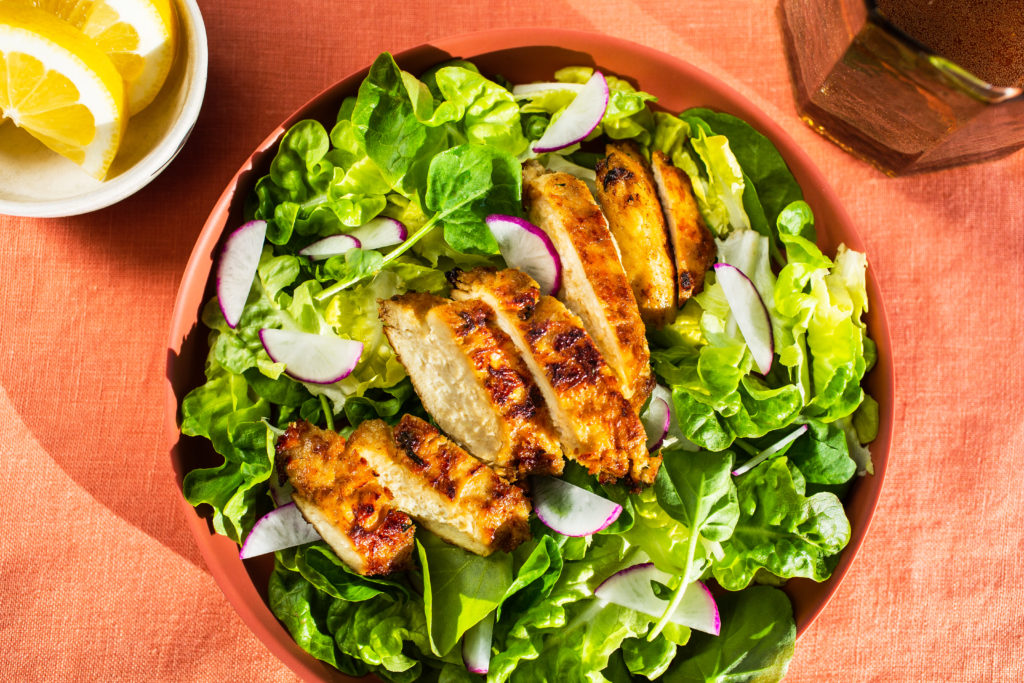Upside Foods Opens Its Doors for ‘EPIC’ Consumer Tours About The Future Of Meat
3 Mins Read
California’s Upside Foods, which has pioneered cultivated meat in the U.S, has announced that it is inviting consumers to tour around its Engineering, Production, and Innovation Center (EPIC) in Emeryville as a way to educate the public about its products. Cellular agriculture alternatives to conventional meat remains shrouded in mystery for many and Upside hopes that by welcoming future customers, it can allay any fears ahead of a commercial launch.
The first tour has already been hosted and featured a lengthy walk around the facility, an education presentation explaining the cultivation process, and a meet and greet with Upside’s founder and CEO, former cardiologist Dr Uma Valeti. The tours are set to become quarterly, following the inaugural event’s success.

Education ahead of eating
Upside Foods has been eagerly awaiting the green light to start manufacturing at scale and for commercial launch but regulatory approval has not yet been granted for the sale of cultivated meats in the U.S. The company says it has decided to use the interim period for education and awareness building.
“In order for cultivated meat to have a positive impact on the world, consumers need to understand it and embrace it,” Uma Valeti, CEO and founder of Upside Foods said in a statement. “We know that the more people learn about cultivated meat, the more excited they become about it. That’s why we intentionally designed EPIC to be a place where people can come and see for themselves how our process works. These tours offer an unprecedented view into meat cultivation and production. For the first time, delicious and sustainable meat can be produced under one roof, in the middle of an urban community, and in full view of consumers.”
Providing supporting data
In 2021, Upside conducted consumer research to better understand the public’s perception of cultivated meat. Data showed that 50 percent of people would be willing try a cell-based product, representing a 7 percent increase since 2020. Most pertinently, the research suggested that the more people knew about cultivated meat, the more likely they were to be open to trying it. Further, there was a notable confusion surrounding the differences between plant-based and cultivated meat technology with 61 percent of survey participants admitting to a lack of clarity. The findings demonstrate a need for broader consumer education and Upside has initiated these facility tours to bring more transparency to what is still an extremely novel food production method.
EPIC was completed and opened in November last year. The 53,000 square foot location is powered exclusively by renewable energy and will be Upside’s main production hub when it is allowed to launch via foodservice partners. The consumer tours represent the latest move by the company to be ready for immediate production. They follow the recent acquisition of Cultured Decadence, a cultivated seafood startup, that will give Upside presence across the full spectrum of meat, poultry and seafood developments.
Read: Jane Goodall To Tell Cultivated Protein Story In ‘Meat The Future’ Film

Transparency throughout the industry
Upside is not alone in its thinking that education and transparency are key to consumer adoption of cultivated meats. Israel’s SuperMeat has designed its facility to include a restaurant that looks out over the laboratory side of the operation. Earlier this year, it played host to a blind taste test of cultivated versus conventional chicken. The cell-based option won out, with SuperMeat founder Ido Savir revealing it had been made just a few steps away. Respected food taster Michal Ansky claimed she would rather cook with the cultivated chicken and that its success represented “an important moment in the history of humankind”.
All photos by Upside Foods.




